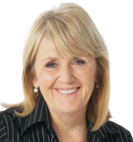Rio Tinto was founded in 1873, when a multinational consortium of investors purchased a mine complex on the Rio Tinto in Spain from the Spanish government. Nowadays, RIO is a dual-listed company traded on both the London, Australian and New York Stock Exchanges. In the 2020 Forbes Global 2000, RIO was ranked as the world’s 114th largest public company.
With joint head offices in London and Melbourne, RIO is the world’s second largest metals and mining corporation (behind BHP) producing iron ore, copper, diamonds, gold and uranium. Although primarily focused on extraction of minerals, the company has significant operations in refining, particularly for refining bauxite and iron ore. RIO is a company that Michael Gable likes.
“I continue to be bullish on resource stocks and RIO is clearly another one where its share price should continue higher from here,” Michael said.
“I’ve spoken previously about commodities doing well in an environment of government stimulus, rising GDP growth, and potential inflation.
“The RIO chart is one that reflects this upside.
“I like it, firstly because it’s going up. Secondly it has provided us with some bullish attributes, which indicate that it can continue to head higher.
“It is interesting to see that during 2019 and 2020, there had been a clear ceiling in the share price at around $107. Then in December, it managed to burst through it. However, in March, the share price had dipped and was trading back near that $107 level again. It is interesting to see that the share price tested that level before bouncing again (circled),” Michael said.
Why is this bullish?
“This is bullish because it’s telling us that the old level of resistance is now a good level of support.
“The old trading range from the last two years is now behind us and RIO is ready to continue in its uptrend.”
Do you expect to see more upside?
“As a holder of RIO, I’d expect more upside will be seen over the course of this year,” Michael said.

Important: This content has been prepared without taking account of the objectives, financial situation or needs of any particular individual. It does not constitute formal advice. Consider the appropriateness of the information in regard to your circumstances.

